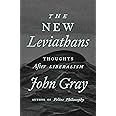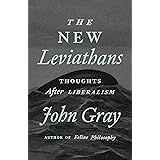
Enjoy fast, free delivery, exclusive deals, and award-winning movies & TV shows with Prime
Try Prime
and start saving today with fast, free delivery
Amazon Prime includes:
Fast, FREE Delivery is available to Prime members. To join, select "Try Amazon Prime and start saving today with Fast, FREE Delivery" below the Add to Cart button.
Amazon Prime members enjoy:- Cardmembers earn 5% Back at Amazon.com with a Prime Credit Card.
- Unlimited Free Two-Day Delivery
- Streaming of thousands of movies and TV shows with limited ads on Prime Video.
- A Kindle book to borrow for free each month - with no due dates
- Listen to over 2 million songs and hundreds of playlists
- Unlimited photo storage with anywhere access
Important: Your credit card will NOT be charged when you start your free trial or if you cancel during the trial period. If you're happy with Amazon Prime, do nothing. At the end of the free trial, your membership will automatically upgrade to a monthly membership.
Buy new:
-44% $10.59$10.59
Ships from: Amazon.com Sold by: Amazon.com
Save with Used - Good
$10.06$10.06
Ships from: Amazon Sold by: Vivé Liber Books LLC





Download the free Kindle app and start reading Kindle books instantly on your smartphone, tablet, or computer - no Kindle device required.
Read instantly on your browser with Kindle for Web.
Using your mobile phone camera - scan the code below and download the Kindle app.

Straw Dogs: Thoughts on Humans and Other Animals Paperback – October 16, 2007
Purchase options and add-ons
The British bestseller Straw Dogs is an exciting, radical work of philosophy, which sets out to challenge our most cherished assumptions about what it means to be human. From Plato to Christianity, from the Enlightenment to Nietzsche and Marx, the Western tradition has been based on arrogant and erroneous beliefs about human beings and their place in the world. Philosophies such as liberalism and Marxism think of humankind as a species whose destiny is to transcend natural limits and conquer the Earth. John Gray argues that this belief in human difference is a dangerous illusion and explores how the world and human life look once humanism has been finally abandoned. The result is an exhilarating, sometimes disturbing book that leads the reader to question our deepest-held beliefs. Will Self, in the New Statesman, called Straw Dogs his book of the year: "I read it once, I read it twice and took notes . . . I thought it that good." "Nothing will get you thinking as much as this brilliant book" (Sunday Telegraph).
- Print length272 pages
- LanguageEnglish
- Publication dateOctober 16, 2007
- Dimensions5.43 x 0.71 x 8.3 inches
- ISBN-100374270937
- ISBN-13978-0374270933
The Amazon Book Review
Book recommendations, author interviews, editors' picks, and more. Read it now.
Frequently bought together

Similar items that may deliver to you quickly
Editorial Reviews
From Publishers Weekly
Copyright © Reed Business Information, a division of Reed Elsevier Inc. All rights reserved.
Review
“Nothing will get you thinking as much as this brilliant book.” ―George Walden, The Sunday Telegraph
“There is unlikely to be a more provocative or more compelling book published this year than Straw Dogs . . . Gray is one of the most consistently interesting and unpredictable thinkers in Britain.” ―Jason Cowley, The Observer (London)
“One of the most important books published this year, and will probably prove to be one of the most important this century. An attempt to suggest new ways of thinking and feeling . . . nobody can hope to understand the times in which we live unless they have read Straw Dogs.” ―Sue Corrigan, Mail on Sunday
“At once daunting and enthralling, Gray's remarkable new book shows us what it would be like to live without the distraction of consolations.” ―Adam Phillips
“This powerful and brilliant book is an essential guide to the new Millennium. Straw Dogs challenges all our assumptions about what it is to be human, and convincingly shows that most of them are delusions.” ―J.G. Ballard
About the Author
Product details
- Publisher : Farrar, Straus and Giroux; First Edition (October 16, 2007)
- Language : English
- Paperback : 272 pages
- ISBN-10 : 0374270937
- ISBN-13 : 978-0374270933
- Item Weight : 2.31 pounds
- Dimensions : 5.43 x 0.71 x 8.3 inches
- Best Sellers Rank: #154,324 in Books (See Top 100 in Books)
- #60 in Existentialist Philosophy
- #75 in Humanist Philosophy
- #297 in Political Philosophy (Books)
- Customer Reviews:
About the author

JOHN GRAY is Emeritus Professor of European Thought at the London School of Economics. He is a regular contributor to the Guardian and the Times Literary Supplement and the author of over a dozen books, including Heresies and the bestselling Straw Dogs. False Dawn has been translated into sixteen languages.
Customer reviews
Customer Reviews, including Product Star Ratings help customers to learn more about the product and decide whether it is the right product for them.
To calculate the overall star rating and percentage breakdown by star, we don’t use a simple average. Instead, our system considers things like how recent a review is and if the reviewer bought the item on Amazon. It also analyzed reviews to verify trustworthiness.
Learn more how customers reviews work on AmazonReviews with images
-
Top reviews
Top reviews from the United States
There was a problem filtering reviews right now. Please try again later.
Central to the hubris of humans in the past was religion, Gray argues, but today humanism and science hold the same ritualistic place in our baseless presumption as religion, particularly Christianity, once did. Not surprisingly, Schopenhauer holds pride of place in Gray’s philosophical pantheon. That great pessimist, Gray notes, saw that “the Enlightenment was only a secular version of Christianity’s central mistake.”
To Gray human individuality and personhood are delusions, history pointless, the idea of human progress a myth. “If solipsism is the belief that only I exist,” he writes, “Idealism is the belief that only humans exist.” He implicitly scoffs at Brandeis’s famous legal maxim that the remedy for false speech is more speech. “Only someone miraculously innocent of history,” he writes, “could believe that competition among ideas could result in the triumph of truth. Certainly ideas compete with one another, but the winners are normally those with power and human folly on their side.”
To Gray morality is a distraction born from the illusion of autonomy. He quotes the “Lieh-Tzu”: “The highest man at rest is as though dead, in movement is like a machine. He knows neither why he is at rest nor why he is not, why he is in movement or why he is not.” (This view is an interesting contrast to that of Colin Wilson who, as Gary Lachman notes in his biography, “Beyond the Robot: the Life and Works of Colin Wilson”, thought that the highest human purpose was to transcend the rote activities of life that consume so much of our time and so little of our thought. These machine-like activities Wilson called “the robot.”)
Gray accurately notes the calamitous consequences of human overpopulation on a finite planet, but also recognizes why this issue which drives virtually every problem we face is largely unaddressed. “So long as population grows,” he writes, “progress will consist in labouring to keep up with it. There is only one way that humanity can limit its labours, and that is by limiting its numbers. But limiting human numbers clashes with powerful human needs.”
Jim Hoagland wrote in his review of one of my favorite books, John Ralston Saul’s “Voltaire’s Bastards”, that it was “a hand grenade disguised as a book.” John Gray has written another explosive. Eat your Wheaties before you read this dense little book, but if you are looking for a provocative, albeit a bit depressing, book, by all means read it.
Gray lays out three philosophies of life and I inferred that we must choose from one of them: the religious believer, the secular humanist, or, like Gray, the Darwinian nihilist. The former two, as I wrote earlier, are according to Gray mired in the delusion that we are moral and distinct from animals. Then there is Gray's belief that we are nothing more than animals, living out our instincts. But I reject Gray's choices. I argue that one can be a Weary Humanist, one who is not deluded by our irrational impulses and general limitations but one who finds meaning by struggling to alleviate cruelty and suffering. Gray says we should give up our struggle to be moral because our "morality" is a delusion. While I admire Gray's intellectual rigor, I cannot embrace his nihilism. Like Gray, I will acknowledge our human flaws, but he did not convince me to give up my struggle to be more moral and to cultivate compassion.
In the end I must give Gray the full max of 5 stars because his fascinating book took me down a concise tour of philosophy, Darwin, science, and made me examine my beliefs. I would rather read an original challenging book like Gray's that I don't completely agree with than some trite collection of homilies. My hats off to Gray for writing something so original and provocative.














